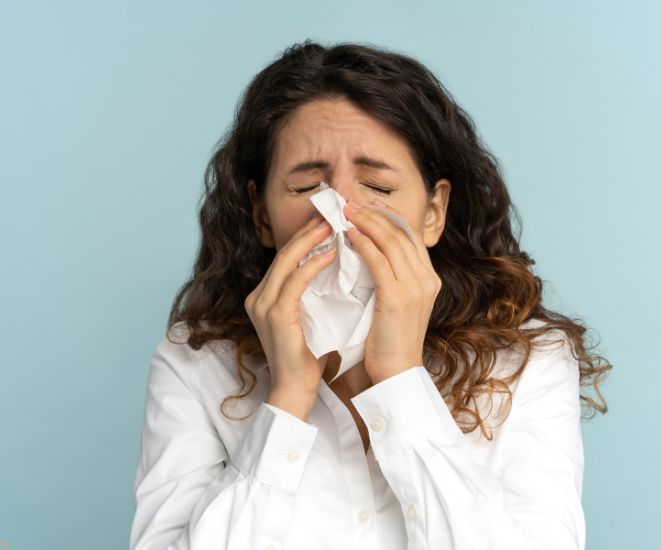How to Treat Allergies Effectively
Whether you suffer from seasonal allergies, environmental allergens or food allergies, managing your symptoms effectively is crucial for maintaining a good quality of life. If you want to know how to treat allergies, keep reading. In this article will explore different allergy treatments, starting with one of the most trusted over-the-counter medications, Claritin.
1. Claritin (Loratadine)
Claritin is a widely used antihistamine that helps relieve allergy symptoms such as sneezing, runny nose, itchy eyes and throat irritation. It is non-drowsy, making it an excellent option for daily use. Claritin is effective in treating seasonal and environmental allergies caused by pollen, dust mite and pet dander. It works by blocking histamine, a chemical released by the immune system in response to allergens.
2. Antihistamines
Apart from Claritin, there are other antihistamines like Zyrtec (cetirizine) and Allegra (fexofenadine) that help manage allergy symptoms. These medications are available over-the-counter and work similarly by blocking histamine receptors. Some antihistamines, such as Benadryl (diphenhydramine), can cause drowsiness and are often recommended for nighttime use or severe reactions.
3. Nasal Sprays
Nasal sprays can provide relief for those suffering from nasal congestion and inflammation caused by allergies. Options include:
- Flonase (fluticasone). A corticosteroid nasal spray that reduces inflammation and congestion.
- Nasacort (triamcinolone). Another steroid nasal spray effective for treating allergic rhinitis.
- Afrin (oxymetazoline). A decongestant spray that provides quick relief but should only be used for short periods (3 days or less) to avoid dependency.
4. Decongestants
Decongestants like Sudafed (pseudoephedrine) help reduce nasal swelling and improve airflow. They are available in both oral and nasal spray forms. However, decongestants should not be used for extended periods as they can lead to rebound congestion and increased blood pressure.
5. Allergy Shots (Immunotherapy)
For those with severe allergies that do not respond well to medications, allergy shots may be an effective long-term solution. These injections gradually expose the body to small amounts of allergens, helping the immune system build resistance over time. Allergy shots are particularly effective for pollen, dust mites, pet dander and insect sting allergies.
6. Sublingual Immunotherapy (Allergy Tablets)
An alternative to allergy shots, sublingual immunotherapy (SLIT) involves placing dissolvable tablets under the tongue. These tablets contain small amounts of allergens and help desensitize the immune system. SLIT is available for certain pollen allergies, such as grass and ragweed.
7. Lifestyle Changes
Medicines aren’t the only ways to combat allergies. There are actually lots of lifestyle changes and adjustments a person can make that can significantly reduce allergy symptoms. Some of those options include:
- Avoid allergens. Identify and minimize exposure to known triggers, such as pollen, dust, mold and pet dander.
- Use air purifiers. HEPA filters can help remove allergens from the air in your home.
- Keep windows closed. During high pollen seasons, keep windows shut to prevent allergens from entering.
- Wash bedding frequently. Dust mites thrive in bedding, so washing sheets in hot water weekly can help.
- Shower after outdoor activities. This helps remove pollen and other allergens from your hair and skin.
8. Natural Remedies
Some people find relief using natural or alternative treatments, such as:
- Saline nasal irrigation. Using a neti pot or saline spray to clear nasal passages.
- Butterbur. A natural supplement that may help reduce allergy symptoms.
- Quercetin. A plant-derived antioxidant found in foods like apples and onions that may have anti-inflammatory effects.
- Honey. Some believe that consuming local honey may help build immunity to pollen allergies, although scientific evidence is limited.
9. Emergency Treatment for Severe Allergies
For those with severe allergies, particularly food or insect sting allergies, carrying an epinephrine auto-injector (such as EpiPen) is essential. Epinephrine can counteract life-threatening allergic reactions (anaphylaxis) by quickly opening airways and raising blood pressure. Anyone experiencing symptoms like difficulty breathing, swelling of the throat or a drop in blood pressure should seek immediate medical attention.
Final Notes
Allergy management varies depending on the type and severity of the allergic reaction. If allergies significantly impact your daily life, consulting an allergist can help identify the best personalized treatment plan. By combining medical and preventive strategies, it is possible to live comfortably despite allergies.
